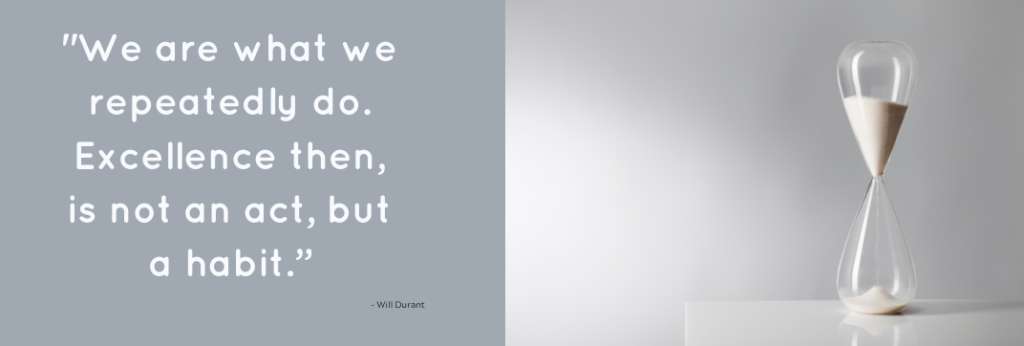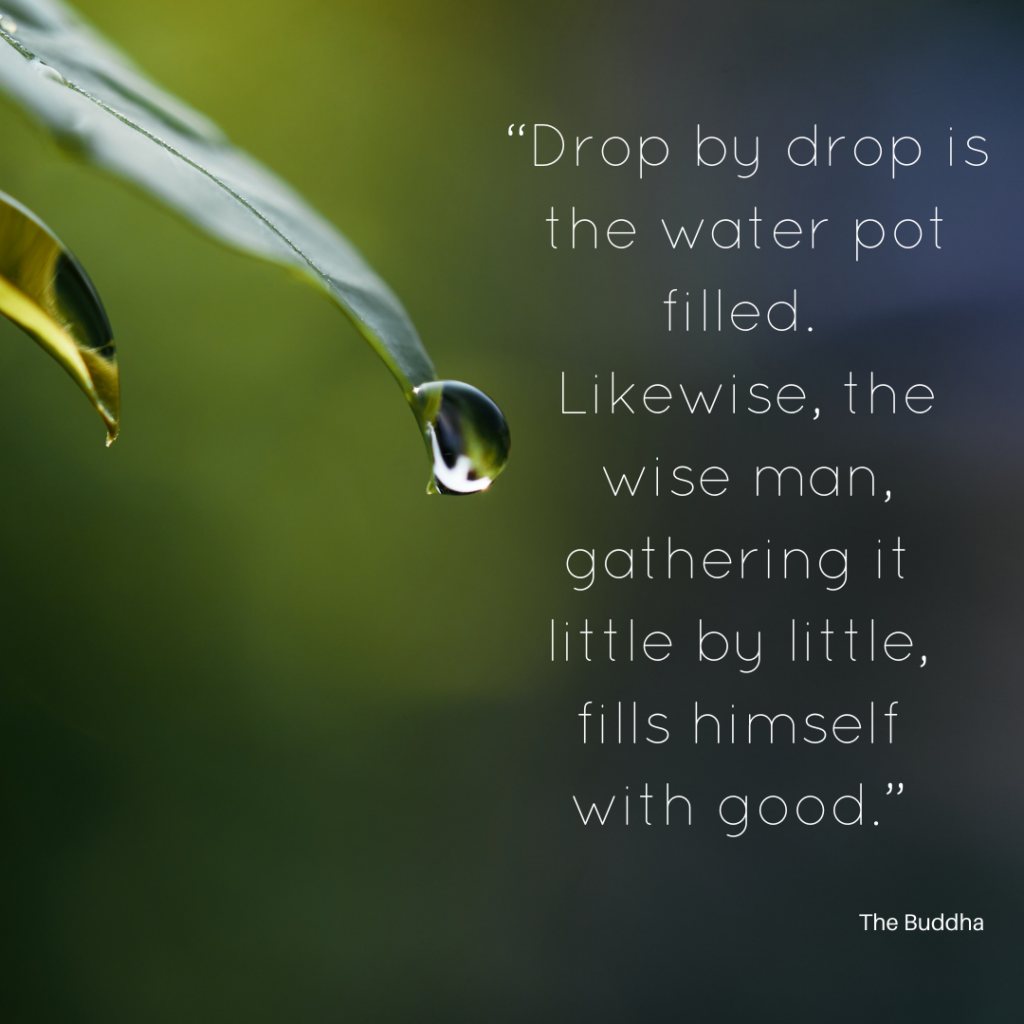Instead of trying to dump a bad habit, try starting a new habit instead. Good habits can be really hard to create. In fact, only about 8% of people stick to their New Year’s resolutions (Statistic Brain).
How can you be in that 8%? Follow the lead of those who have done it! Research has found that there are some very specific things that you can do to greatly improve your chance of success.
So, what change do you want to see in yourself? Do you want to be a better student? Kick the video game habit? Make better food choices? It all starts with your habits.

Break it down
The first step is to break the goal down into smaller and smaller steps until you have something that you can do in only a matter of minutes and that you don’t feel any dread or resistance to doing.
“I want to write a novel” is way to much if you are just getting started. A backward breakdown goes something like this:
- I will write a novel
- I will write the first draft
- I will write a chapter
- I will write 200 words
- I will open my computer
“I will open my computer” is the new habit. If you are already in the habit of writing, maybe “I will write 200 words” is the habit. Start where you feel the least resistance.
“I want to make better grades” can be broken down into:
- I will turn in all of my assignments completed and on time
- I will spend enough time every night on my homework and studying
- I will plan out what I have to do every night
- I will open my backpack and get out my planner
If you aren’t doing that last one already, it becomes your new habit.
Focus on the action and the practice of doing this. This is about quantity, not duration. If all you do is pull out your planner every night, you are on your way to building the habits that will get you better grades.

You can start any new habit like this, with only a few minutes a day. Once you have the habit of starting to do the thing you want to do, growing that habit will be easy.
Why does this work? When you are just starting to establish a new habit, using tiny goals can increase your belief that the final goal is something that you can get to, that it is attainable. Additionally, by breaking the action down into the one that you don’t feel resistance to, you increase your chances of repeating the behavior.
Find your cue
A cue in theater refers to something that is said or done that lets an actor know to enter the stage or to start their lines. In habit formation, a cue serves the same purpose – it reminds us to do something.
You can use cues such as time of day (I will practice my drills at 4 pm every day), location (I only do homework at the desk), routine (after dinner, I will take a shower).
Our brains love routine and pattern. Habits form when we repeat the behavior in some consistent context (a certain place, at a certain time, after another thing that you already do automatically) many times until it also becomes automatic. Getting the initial action of a habit to become automatic is the secret.
Make it easy
Set yourself up for success by preparing your environment for the new habit ahead of time. Think about what the obstacles are for you in the first minutes of your new habit and engineer your space so that you can act on the habit with as little friction as possible.
- Have your desk stocked with all of the materials you need to do your homework.
- Give your phone to someone to hold onto while you write that paper.
- Have healthy snacks available and prepped for when you get hungry.
- Set your clothes out the night before so that you can be on time.
Celebrate your success!
No matter how small the success, celebrate it. No, you don’t need a party for pulling your homework out of your bag but you can give yourself a little mental pat on the back, tell yourself, “Good Job!” or do a little dance or put a checkmark or a smiley face on your calendar.
Tracking your behavior can also give you a little happy feeling of accomplishment that tells your brain that it wants to do this again. You can track your behavior by making a mark in your calendar, or you can get really high tech or creative with your tracking. Either way, that little feeling of success will improve your chance of repeating the behavior next time.
Conclusion
Large goals can be completely overwhelming. Break a large goal down into small enough chunks that you really have no excuse not to complete them. Once you create the tiny habit, build on it until you have a great new healthy habit in motion.
Remember to find your cues, such as time or location, or tie the new habit to an established routine. Clear your way ahead of time by prepping your environment, and reward yourself for completing even the tiniest two-minute task.
Remember, you are building a habit with repetition, not duration at first.
I’m going to try these out myself to increase the number of books I read (or listen to) this year. The small habit I’m starting with is to put my headphones in when I get out my dog’s leash so that I can eventually add about 30 minutes of audiobook time every day. If I can build up to this, I will be able to add over 100 hours of listening to this year!
What tiny task will you commit to doing every day?








Leave a Comment